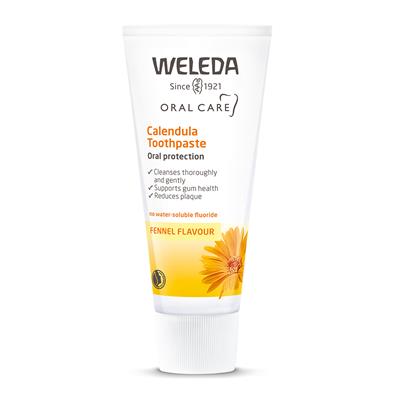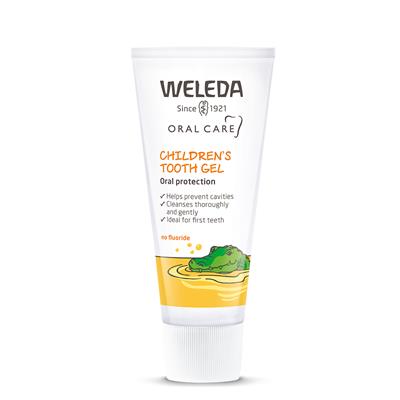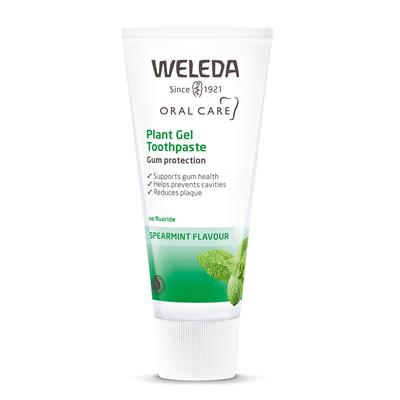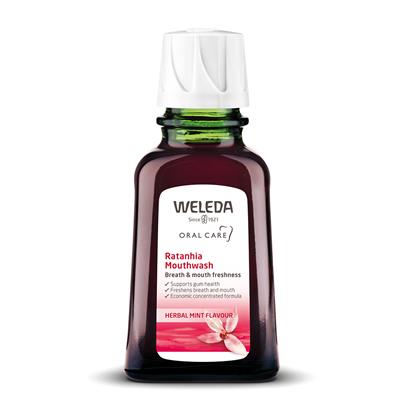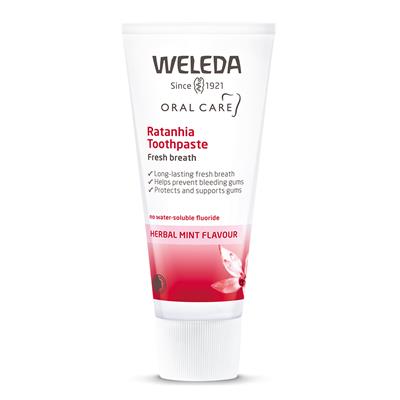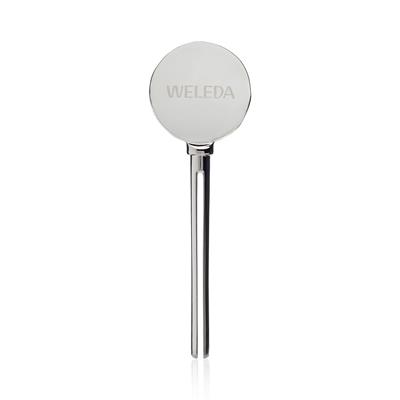Back

Samantha Jugdev BSc (Hons), BDS (Brist), MFHom (Dent):
Samantha Jugdev studied dentistry in Bristol and established a dental practice with her husband Jasvinder in Oxfordshire in 2004 where she specialises in periodontics (gum disease). She currently Chairs the British Homeopathic Dental Association.
Fred Dartford BDS (Lon), LFHom:
Fred Dartford qualified as a dentist in 1972 and set up his own dental practice in Kent in 1994. In 2005 he joined the British Homeopathic Dental Association and subsequently specialised in holistic dentistry for over 15 years.
SJ: The mouth is the gateway to the rest of our bodies and supporting our oral health goes a long way to supporting the health of our whole being. I find that complementing my general dental practice with a more holistic approach brings about better dental health for my patients and more job satisfaction for me. People are becoming increasingly concerned about their health and their environment, and considering the food they feed themselves with and the products they use on their bodies. Our environment is awash with chemicals which often we cannot avoid, but we can choose what personal hygiene products we use, and I support my patients’ choices.
FD: Probably as many as 700 different bacteria live in the mouth, some good, some bad, but in harmony. It does not take much to upset the balance; some toothpastes and mouthwashes can contain quite harsh ingredients that can do exactly this. Some antibiotics have been known to do this too. Natural oral care products tend to avoid these harsh ingredients, so it makes sense to use them to help maintain that important balance of flora, which we call the ‘microbiome’, in the mouth.
FD: Bacteria acting together in 'communities' are known to be beneficial - they neutralise acids for example. When there are not enough 'good' bacteria, other strains can takeover, resulting in dental concerns such as decay and gum disease.
SJ: Yes, the oral microbiome is a fascinating community of microbes made up of thousands of different species. Our oral microbiome is as individual as us, inherited from our parents; it develops and evolves depending on lifestyle factors, general health and medication including antibiotics. The microbiome is important for our health as well as our risk of disease. Remember that our mouths are the start of the gut and what goes on here is a reflection of the health of the rest of our bodies. Oral health can also influence the risk of so many other health issues including heart disease, diabetes, low birth weight babies to name a few. As such, our oral health is so important and often undervalued.
It is known that it is very difficult to change the oral microbiome once it is established. In cases of periodontitis (gum disease) we know that often there are specific bacteria present which contribute to the progression. Sometimes, in order to control these bacteria, we do have to use antibiotics and there is growing evidence that specific probiotics can be effective as well. A lot of toothpastes and mouthwashes are designed to stop these bacteria from reproducing or kill them all together. However, these are indiscriminate and also affect the bacteria we need for health so we need to consider oral health products that can maintain a healthy balance.

SJ: Toothpaste is such a personal choice. Interestingly, the amount of foaming agents put in toothpastes is often cultural - for example, in Europe people like more froth, but in Japan they don’t like it at all. There is a lot of concern about sodium lauryl sulphate (SLS) which is in most toothpastes. It has a link to ulceration and soreness in some people and is a known skin irritant. SLS is a detergent and in a lot of cosmetics on the market but also present in cleaning products like washing up liquid. Lots of people are becoming increasingly aware of what they are putting on their skin, trying to avoid chemicals and choosing more natural ingredients. This choice is naturally extending to oral health products.
FD: As well as SLS, I am not a big fan of triclosan, a known irritant that can cause contact dermatitis for some. A range of studies suggest potential harmful effects for human health, polluting the planet and possibly even contributing to antibiotic resistance.
FD: Fluoride-free oral care products are useful in areas where water contains fluoride. They are also useful when children are learning not to swallow toothpaste, especially when parents may have been advised by their dentist not to rinse.
SJ: Fluoride does have its place. For various reasons some people are at high risk of getting dental decay, and fluoride alters the mineral structure of our enamel and dentine making them more resistant to damage and decay. The people that are at high risk are often those with a high sugar and refined carbohydrate diet, those who find cleaning difficult or are not carrying this out optimally, and people with dry mouths. A lot of our older generations are on several different medications with dry mouth as a common side effect. We need saliva to flow and prevent stagnation of food, debris and bacteria around the teeth; saliva also helps balance the acid level protecting the teeth from decay. However, with a good diet and excellent oral hygiene for most people, the amount of fluoride used could be reduced or dropped.
Read more about the advantages and disadvantages of fluoride
SJ: Brushing our teeth regularly and efficiently is key to good oral health. As soon as we have cleaned our teeth we immediately get the biofilm reforming. By brushing twice daily and effectively we can keep this under control. Allowing bacteria to build up causes inflammation of the gums which in turn can lead on to periodontitis (gum disease) in over 20% of the population. If periodontitis progresses we can get infections, discomfort, mobile teeth and eventual tooth loss.
However, the benefits of good oral health do not just stop in the mouth. Inflammation affects the whole body putting you at risk of heart disease, diabetes and other serious conditions. Oral bacteria have been found in blood vessels and in diseased hearts possibly due to the cells in our mouths becoming leaky in the presence of inflammation. There is increasing evidence of a close two-way link between periodontitis and diabetes, and by controlling the health of the gums you can gain improved control over the diabetes and vice versa.
FD: Brushing is the most important factor backed up with a good toothpaste. Poor oral hygiene will almost certainly lead to decay or gum disease. This can also go onto affect overall health, as bacteria from the mouth can find their way into bloodstream and have been linked to heart disease/strokes. This has been known for many decades; there is still no quick fix, just keep cleaning well!

SJ: Mouthwash is personal preference. If you are mechanically cleaning your teeth well with a toothbrush and interdental aids you are unlikely to need a mouthwash. However, there are advantages to them. If your mouth is sore there are mouthwashes that can help, and I personally find those with natural ingredients effective. Some people just like using them because it makes their mouth feel fresher. There are lots of mouthwashes that claim to do certain things. A common ingredient is chlorhexidine which is antimicrobial and often recommended for short term use during infections or after surgery. It works by damaging the cell wall of the bacteria. Unfortunately this is not necessarily just the cell wall of the bacteria, but could be our own healing cells as well.
FD: It is not usually necessary to use a mouthwash very often, and nothing antibacterial, because you do not want to upset the healthy balance of flora in the mouth.
SJ: Generally, people are increasingly concerned about the use of plastics and questioning the packaging or the material that oral health products are made from and are keen to recycle. Sadly, dentistry is not a very green industry and often items are plastic and not recyclable. The best toothbrushes and interdental aids are often made out of plastic, and although the manufacturers are trying to improve this it is very difficult. I find when talking to my patients they are very keen to try and find products that are recyclable and every little helps.
FD: There is no doubt that the plastic is a problem and anything recyclable is good news. I like the Weleda aluminium tubes and the large cap which allows tube to be stored vertically.
FD: My favourite is the Salt Toothpaste. The time-tested ingredients like sodium bicarbonate are doing their job.
SJ: I also really like the Weleda’s Salt Toothpaste. I found that my mouth and teeth felt clean and smooth after using it and this sensation lasted most of the day. For taste though, you can’t beat the Calendula and fennel for that aniseed flavour.
FD: I recommend taking arnica after extractions, surgery and trauma.
SJ: Arnica is so useful in my dental practice. Most interventions I carry out have the potential for bruising and trauma, so I use it when placing fillings, carrying out hygiene treatment and taking teeth out. Often I give it to my patients when they are sat in my chair as a single dose, though I often recommend they can take it as required afterwards too.

The natural way to a healthy smile
Two experienced holistic dentists help us understand the advantages of using natural products to support oral health24 May 2022
Holistic dentists, Samantha Judgev and Fred Dartford, explain the advantages of using natural products to support oral health.
Samantha Jugdev BSc (Hons), BDS (Brist), MFHom (Dent):
Samantha Jugdev studied dentistry in Bristol and established a dental practice with her husband Jasvinder in Oxfordshire in 2004 where she specialises in periodontics (gum disease). She currently Chairs the British Homeopathic Dental Association.
Fred Dartford BDS (Lon), LFHom:
Fred Dartford qualified as a dentist in 1972 and set up his own dental practice in Kent in 1994. In 2005 he joined the British Homeopathic Dental Association and subsequently specialised in holistic dentistry for over 15 years.
You have both practiced a holistic approach to dentistry for some years now, what do you feel are the benefits of using natural products such as toothpastes and mouthwash?
SJ: The mouth is the gateway to the rest of our bodies and supporting our oral health goes a long way to supporting the health of our whole being. I find that complementing my general dental practice with a more holistic approach brings about better dental health for my patients and more job satisfaction for me. People are becoming increasingly concerned about their health and their environment, and considering the food they feed themselves with and the products they use on their bodies. Our environment is awash with chemicals which often we cannot avoid, but we can choose what personal hygiene products we use, and I support my patients’ choices.
FD: Probably as many as 700 different bacteria live in the mouth, some good, some bad, but in harmony. It does not take much to upset the balance; some toothpastes and mouthwashes can contain quite harsh ingredients that can do exactly this. Some antibiotics have been known to do this too. Natural oral care products tend to avoid these harsh ingredients, so it makes sense to use them to help maintain that important balance of flora, which we call the ‘microbiome’, in the mouth.
Why is the balance of the microbiome in the mouth so important for oral health?
FD: Bacteria acting together in 'communities' are known to be beneficial - they neutralise acids for example. When there are not enough 'good' bacteria, other strains can takeover, resulting in dental concerns such as decay and gum disease.
SJ: Yes, the oral microbiome is a fascinating community of microbes made up of thousands of different species. Our oral microbiome is as individual as us, inherited from our parents; it develops and evolves depending on lifestyle factors, general health and medication including antibiotics. The microbiome is important for our health as well as our risk of disease. Remember that our mouths are the start of the gut and what goes on here is a reflection of the health of the rest of our bodies. Oral health can also influence the risk of so many other health issues including heart disease, diabetes, low birth weight babies to name a few. As such, our oral health is so important and often undervalued.
It is known that it is very difficult to change the oral microbiome once it is established. In cases of periodontitis (gum disease) we know that often there are specific bacteria present which contribute to the progression. Sometimes, in order to control these bacteria, we do have to use antibiotics and there is growing evidence that specific probiotics can be effective as well. A lot of toothpastes and mouthwashes are designed to stop these bacteria from reproducing or kill them all together. However, these are indiscriminate and also affect the bacteria we need for health so we need to consider oral health products that can maintain a healthy balance.
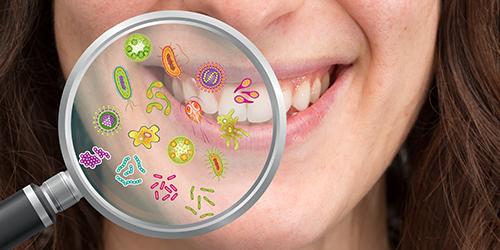
What are the ingredients you would prefer not to be in your toothpaste and why?
SJ: Toothpaste is such a personal choice. Interestingly, the amount of foaming agents put in toothpastes is often cultural - for example, in Europe people like more froth, but in Japan they don’t like it at all. There is a lot of concern about sodium lauryl sulphate (SLS) which is in most toothpastes. It has a link to ulceration and soreness in some people and is a known skin irritant. SLS is a detergent and in a lot of cosmetics on the market but also present in cleaning products like washing up liquid. Lots of people are becoming increasingly aware of what they are putting on their skin, trying to avoid chemicals and choosing more natural ingredients. This choice is naturally extending to oral health products.
FD: As well as SLS, I am not a big fan of triclosan, a known irritant that can cause contact dermatitis for some. A range of studies suggest potential harmful effects for human health, polluting the planet and possibly even contributing to antibiotic resistance.
When are fluoride-free toothpastes useful?
FD: Fluoride-free oral care products are useful in areas where water contains fluoride. They are also useful when children are learning not to swallow toothpaste, especially when parents may have been advised by their dentist not to rinse.
SJ: Fluoride does have its place. For various reasons some people are at high risk of getting dental decay, and fluoride alters the mineral structure of our enamel and dentine making them more resistant to damage and decay. The people that are at high risk are often those with a high sugar and refined carbohydrate diet, those who find cleaning difficult or are not carrying this out optimally, and people with dry mouths. A lot of our older generations are on several different medications with dry mouth as a common side effect. We need saliva to flow and prevent stagnation of food, debris and bacteria around the teeth; saliva also helps balance the acid level protecting the teeth from decay. However, with a good diet and excellent oral hygiene for most people, the amount of fluoride used could be reduced or dropped.
Read more about the advantages and disadvantages of fluoride
How important is it to brush teeth regularly and efficiently?
SJ: Brushing our teeth regularly and efficiently is key to good oral health. As soon as we have cleaned our teeth we immediately get the biofilm reforming. By brushing twice daily and effectively we can keep this under control. Allowing bacteria to build up causes inflammation of the gums which in turn can lead on to periodontitis (gum disease) in over 20% of the population. If periodontitis progresses we can get infections, discomfort, mobile teeth and eventual tooth loss.
However, the benefits of good oral health do not just stop in the mouth. Inflammation affects the whole body putting you at risk of heart disease, diabetes and other serious conditions. Oral bacteria have been found in blood vessels and in diseased hearts possibly due to the cells in our mouths becoming leaky in the presence of inflammation. There is increasing evidence of a close two-way link between periodontitis and diabetes, and by controlling the health of the gums you can gain improved control over the diabetes and vice versa.
FD: Brushing is the most important factor backed up with a good toothpaste. Poor oral hygiene will almost certainly lead to decay or gum disease. This can also go onto affect overall health, as bacteria from the mouth can find their way into bloodstream and have been linked to heart disease/strokes. This has been known for many decades; there is still no quick fix, just keep cleaning well!

When would you recommend using a mouthwash? What are the downsides to some of the synthetic mouthwashes on the market?
SJ: Mouthwash is personal preference. If you are mechanically cleaning your teeth well with a toothbrush and interdental aids you are unlikely to need a mouthwash. However, there are advantages to them. If your mouth is sore there are mouthwashes that can help, and I personally find those with natural ingredients effective. Some people just like using them because it makes their mouth feel fresher. There are lots of mouthwashes that claim to do certain things. A common ingredient is chlorhexidine which is antimicrobial and often recommended for short term use during infections or after surgery. It works by damaging the cell wall of the bacteria. Unfortunately this is not necessarily just the cell wall of the bacteria, but could be our own healing cells as well.
FD: It is not usually necessary to use a mouthwash very often, and nothing antibacterial, because you do not want to upset the healthy balance of flora in the mouth.
What do you feel about the plastic tubes that so many toothpastes come in, which are non-recyclable?
SJ: Generally, people are increasingly concerned about the use of plastics and questioning the packaging or the material that oral health products are made from and are keen to recycle. Sadly, dentistry is not a very green industry and often items are plastic and not recyclable. The best toothbrushes and interdental aids are often made out of plastic, and although the manufacturers are trying to improve this it is very difficult. I find when talking to my patients they are very keen to try and find products that are recyclable and every little helps.
FD: There is no doubt that the plastic is a problem and anything recyclable is good news. I like the Weleda aluminium tubes and the large cap which allows tube to be stored vertically.
Do you have a favourite Weleda toothpaste, and what do you like about it?
FD: My favourite is the Salt Toothpaste. The time-tested ingredients like sodium bicarbonate are doing their job.
SJ: I also really like the Weleda’s Salt Toothpaste. I found that my mouth and teeth felt clean and smooth after using it and this sensation lasted most of the day. For taste though, you can’t beat the Calendula and fennel for that aniseed flavour.
When do you recommend Arnica to your patients?
FD: I recommend taking arnica after extractions, surgery and trauma.
SJ: Arnica is so useful in my dental practice. Most interventions I carry out have the potential for bruising and trauma, so I use it when placing fillings, carrying out hygiene treatment and taking teeth out. Often I give it to my patients when they are sat in my chair as a single dose, though I often recommend they can take it as required afterwards too.
Shop the Weleda Oral Care Range:
Calendula Toothpaste 75ml
Item No.
101001
£5.95
Add to basket
Children's Tooth Gel 50ml
Item No.
101005
£4.50
Add to basket
Plant Gel Toothpaste 75ml
Item No.
101006
£5.95
Add to basket
Ratanhia Mouthwash 50ml
Item No.
101009
£10.50
Add to basket
Ratanhia Toothpaste 75ml
Item No.
101002
£5.95
Add to basket
Tube Squeezer Key
Item No.
405741
£3.95
Add to basket


